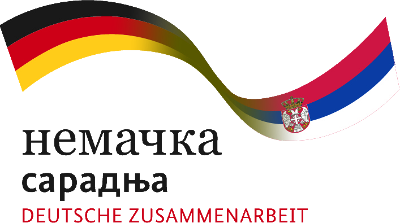SERBIA

The most important fuel for household heating in Serbia is wood (34%), while 25.1% of households use heat from district heating (DH) systems (48.3% of urban households), 20.1% electricity, 10.5% coal and 9.6% natural gas.
The total installed capacity of the DH systems in Serbia is 5821 MW of heat, which is supplied by 58 public companies with their heat production plants situated in 255 locations. The largest DH system is in the capital city of Belgrade, the installed capacity of heat production plants in Belgrade is 49% of the total in Serbia. The average age of heat production plants is 28 years.
Primary energy sources for heat production in DH plants are currently natural gas (77.7%), heavy oil (13.5%) and coal (8.8%). In the last 5 years the consumption of natural gas has gradually increased by 5.5%, mostly at the expense of heavy oil.
The yearly production of heat in DH systems in Serbia is in the order of 7000 GWh, out of which 81% is distributed to households and 19% to commercial and public buildings.
The total length of the heat distribution network is 2354 km with an average age of nearly 23 years and has been constantly upgraded and enlarged (increased by nearly 300 km in the last 5 years). Estimated heat losses in the distribution system are of around 12%.
The use of renewable energy sources (RES) and cogeneration of electricity and heat (in CHP units) in DH systems in Serbia has started recently. The number of plants using wood chips is increasing every year, reaching a yearly consumption of nearly 7700 tones.
KeepWarm resources
KeepWarm Guidance Document
This guidance document has been created as a means of helping you navigate some of the key issues involved in upgrading your district heating (DH) by using more sustainable energy sources, namely from a variety of viable renewable energy sources and/or excess heat harvestable from industrial/commercial processes. Integrating and fully-switching to these greener DH alternatives makes sense not only at an operational level, but is greatly supportive, if not essential, for the successful implementation of a variety of Europe’s flagship policy initiatives.
This Guidance Document has been translated into the languages of KeepWarm project partners. Please find here the Serbian version.
Capacity Building
The tailor made Capacity Building programm for Serbia covers training topics identified by Serbian DHS operators and staff during the needs assessment phase. The highest priorities have been given to technical topics and managerial topics. Top priority topics were additionally also identified in RES and EE topics including waste to energy aspects, organisational topics and financial topics. The trainings have been evaluated through anonymous questionnaires by the trainees.
Replicable DHS demo cases
KeepWarm Showroom of replicable and bankable DHS pilot projects
The purpose of this Service Pitch Book is to relay the availability of replicable, bankable examples of DH-retrofits for both energy efficiency (EE) and integrating more sustainable energy sources (i.e. RES and/or excess heat, ExH), as well as providing information about national contexts, especially useful to audiences outside a particular country. It highlights the pilot DHSs which have been actively participating in KeepWarm’s activities, giving them visibility as well as stimulating networking opportunities to reach out to them directly for improving DH even further.
This Showroom has been translated into the languages of KeepWarm project partners. Please find here the Serbian version.
KeepWarm Inspire Event in Serbia (October 2020)
7 October 2020 (in Serbian)
Additional information on the event can be found here (in Serbian).
News archive
Country project partner
The Laboratory of Thermal Engineering and Energy is one of the largest in the Vinča Institute of Nuclear Sciences. It represents the most relevant scientific institution for thermal engineering and energy in Serbia. Biomass research is an important part of its activities, including fundamental and applied research as well as the development of mathematical models for combustion and heat transfer processes. Vinca will support the implementation of pilot projects in Serbia.




